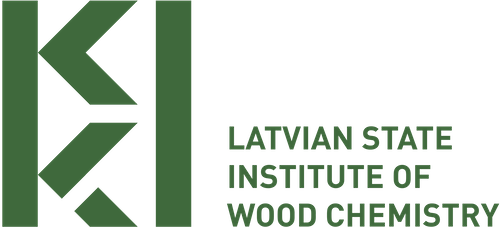Dare to be sustainable
For years humankind has burned lignin instead of using it as nature intended – as a superior adhesive. We are here to change that approach.
About VIOBOND
The VIOBOND consortium aims to take essential commercialization steps based on the natural wood component lignin, creating industrial technologies to significantly reduce the share of fossil raw materials in phenol formaldehyde resin, which is widely used in various everyday products.
Under the auspices of the VIOBOND project, a first-of-its-kind flagship plant producing industrial-scale lignin phenol-formaldehyde (LPF) resins will be built in Latvia during the next five years. Production capacity of environmentally friendly resin will reach 45,000 tons per year and renewable lignin will replace over a third of the fossil materials used traditionally. Consortium members will use new resin for plywood manufacturing and coating, sandpaper adhesive and glass wool thermal insulation binder.
Why Are We Joining This Initiative?
The main target of the project is to build a new bio-based resin plant in Latvia, utilizing lignin from different biorefineries to partially replace phenol and formaldehyde in a variety of resin products.
Besides the resin value chain, there are also other lignin valorisation pathways to improve utilization of this valuable bioproduct. Lignin in composite application, as a replacement for bitumen in asphalt, advanced fuels and lignin carbon applications are currently among the most promising commercialization routes.
How Are We Going To Achieve This?
Replacing Toxic With Natural
Most plants, including trees of all species, contain 20-30% of lignin, a natural biopolymer that together with cellulose and hemicellulose forms the wood cell structure that allows trees to grow in length.
Nowadays, science and technologies have developed to the point that people can divide wood into its components. Phenol and formaldehyde, which are the compounds of the most commonly used resins, are harmful to humans, whereas lignin is a natural, sustainable by-product.
Extracted From Wood
Non-modified lignin is extracted from wood by means of unique technologies. After this process, lignin is already suitable for modification, which will be used for production of lignin-based resins for wide industrial applications. Examples include plywood, thermal insulation, sandpaper, floor and furniture production, etc.
Lignin resin can be used not only to produce plywood, but also in production of impregnated paper, which is used for plywood to reduce any unnecessary friction.
Why Lignin?
Historically, lignin was a by-product in the production of pulp, which, together with other by-products, was mainly used as a fuel for energy production. In recent years, the development of novel wood-processing technologies has made it possible to extract from wood chemically non-modified lignin highly suitable for further chemical modifications and functionalization.
Facts
6
6 year project
8
8 partners
32
€ 32 millions investments
45
45 000 tons of resin annualy
Latest News
Latvijas Finieris Reaches 100 Lignin Adhesive Tests, Advancing Natural Production Technologies
This month, the Product Research Laboratory at AS Latvijas Finieris completed its 100th trial of a naturally-derived adhesive with the potential to play a key role in future plywood manufacturing. This achievement represents strong progress towards the company’s goal of developing more environmentally friendly, naturally sourced technologies and reducing reliance on fossil-based raw materials. The development of lignin-based adhesives forms part of…
Topping Out the Latvijas Finieris Resin Mill in Riga
On 28 October, the topping-out ceremony for the new resin production mill of Latvijas Finieris was held in the Bolderāja neighbourhood of Riga. “Topping out marks a key stage in the construction process, celebrating the completion of major structural works by placing a symbolic green wreath atop the building. Although there is still some way to…
Foundation slab constructed for the future resin mill of AS “Latvijas Finieris”
Continuing the construction of the new resin mill in Riga, Bolderāja neighbourhood, the foundation slab of the future building was laid in March.
Latvijas Finieris is starting the construction of a new resin mill with the placement of messages in the foundations
In order to develop the production of new synthetic resins based on the natural wood component lignin, thus reducing the share of fossil raw materials in the production of phenolic formaldehyde resins.
Viobond stimulates investments
The assembly of large-format wooden structures has begun in the expansion project of RSEZ SIA “Verems” birch plywood mill, which will create new, knowledge-intensive jobs in Rēzekne region and will give an opportunity to expand the range of products and services offered by “Latvijas Finieris”.
The first shipments of the premium CO2 footprint lignin on their way to Latvijas Finieris
We are thrilled to announce that the first shipments of Lignova, the premium CO2 footprint lignin, are now en route to Latvijas Finieris, delivered by our esteemed collaboration partner Fibenol as part of the #VIOBOND project.








